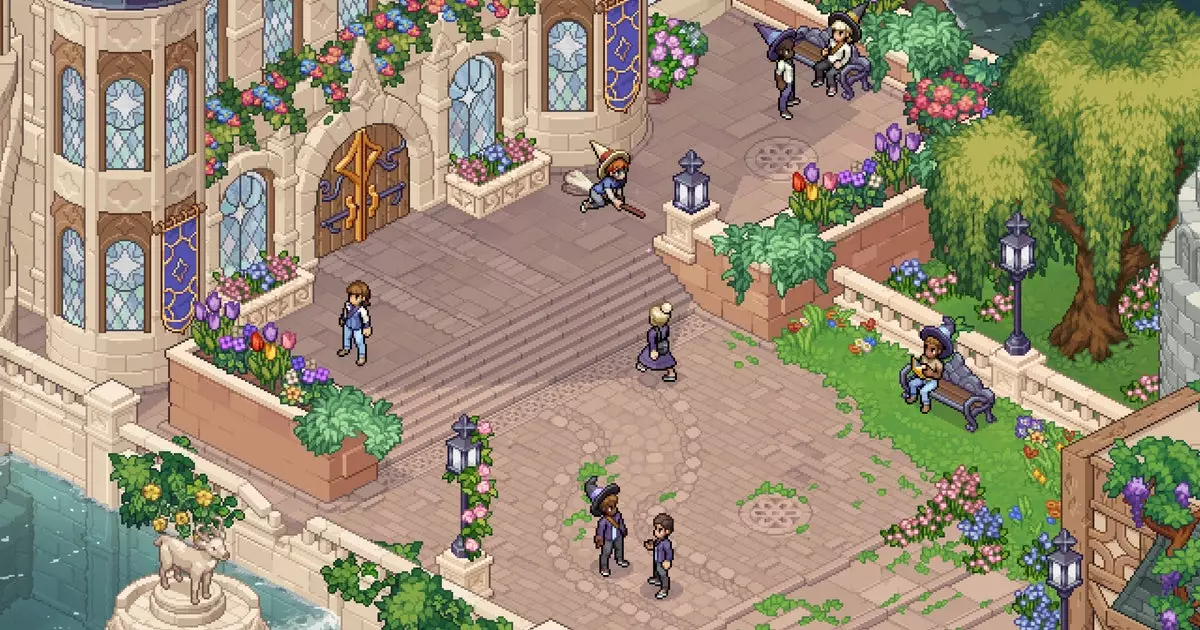Chucklefish, the visionary team behind beloved titles like Stardew Valley and Starbound, is stepping back into the limelight with their anticipated title, Witchbrook. This adventure promises an enchanting blend of life simulation set against a backdrop of magical education—a concept that is incredibly appealing in today’s gaming landscape. Drawing inspiration from popular culture references such as Kiki’s Delivery Service and The Worst Witch, the game strikes a delightful chord, especially for those who find joy in whimsical worlds where the mundane intertwines with the extraordinary.
Immersive Gameplay Experience
The first trailer presents a vividly crafted universe filled with spells, potions, and the charm of life at Witchbrook College. Players can expect to step into the role of a budding witch, experiencing everything from flying on broomsticks to learning about the mystical arts. This isn’t merely an educational romp; it’s a vibrant tapestry of exploration, where players can forge relationships with a variety of NPCs in the magical town of Mossport. The opportunity to form covens adds a communal aspect that aligns nicely with contemporary gaming trends emphasizing social interaction and collaboration.
Beyond Magic: A Rich Spectrum of Activities
What distinguishes Witchbrook from its contemporaries isn’t solely its focus on witchcraft; it’s the promise of a multifaceted gameplay experience. Players will not only master the arcane but will also have the chance to engage in a suite of activities ranging from photography to business management. Such diversity addresses a broader audience, appealing to those who may appreciate the intricacies of running a shop while dabbling in sorcery. It certainly raises the bar for life simulation games by introducing entrepreneurial elements that allow for more personalized player expression.
The Pursuit of Witchy Whims
However, as enchanting as the premise is, there’s an underlying sentiment that some gaming communities have voiced: there may be room for a deeper exploration of witchcraft’s darker or quirkier aspects. Players like Alice Bee, who humorously critiqued the game’s potential, mentioned features such as pet options beyond the classic cat and dog choices. This playful criticism highlights a longing for depth in these delightful settings. Here lies an opportunity for Chucklefish—the chance to push the boundaries of what a magical game can include, such as quirky pets or more unconventional side quests.
Future Horizons and Community Engagement
Set for release in late 2025, Witchbrook carries the weight of high expectations, both from fans of the genre and from those drawn in by the enchanting trailer. The community engagement has already stirred excitement, with players expressing their wishes and desires for the game through various platforms. This feedback loop offers Chucklefish a unique opportunity to create a game that resonates strongly with its audience’s hopes and dreams.
As we anticipate the day when players can walk the verdant paths of Witchbrook College, it’s crucial to remember that this journey is not just about personal escape—it’s about igniting collective joy and communal stories in a world where magic is both an art and a lifestyle.

